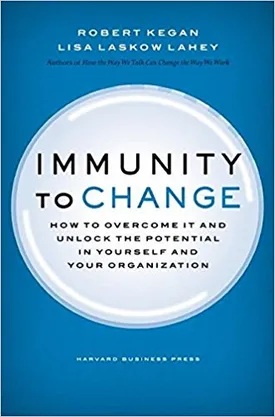Robert Kegan
Robert Kegan is one of the most influential and acclaimed developmental psychologists alive today. He has been a professor at Harvard University since 1983, where he is currently the William and Miriam Meehan Professor in Adult Learning and Professional Development at the Graduate School of Education. He is best-known for his work on meaning-making and identity formation throughout adulthood, and he is the author of several books including The Evolving Self (1982), In Over Our Heads (1994) and Immunity to Change (2009).
Kegan’s theories on adult development arise out of his study of the human capacity to self-reflect and grow. He divides growth into four distinct stages, each building upon its predecessor. The four stages are as follows. The first stage is Impulsive, Ego-Centric, when individuals are driven by instinct, urgency and emotion. The second stage is Imperial, when individuals gain some control over their emotions and develop interpersonal relationships. The third stage is Interpersonal, when individuals recognize their own and others’ feelings and motivations. The fourth and final stage is Institutional, when individuals are able to step back from their own needs and desires and understand the impact their decisions will have on the collective.
Kegan’s ideas about the evolution of self throughout adulthood have been incredibly influential, particularly in the field of education. He argues that learning should be a personal journey and not a standardized experience, and that education should not simply convey knowledge but should involve an exploration of meaning-making processes. He further suggests that teaching should promote self-reflection and personal growth rather than promoting conformity.
Kegan’s work has also been highly influential in other fields, such as psychotherapy, organizational development, and spirituality. His theories are used as a framework for understanding group dynamics, interpersonal relationships, and individual growth. Kegan believes in the potential for change and transformation throughout adulthood, and he challenges individuals and organizations to create spaces in which self-reflection and growth can occur.
Kegan’s books are widely read and cited, and his theories continue to shape the field of psychology today. In particular, his ideas about identity formation and personal growth are particularly relevant in the modern world, where people are increasingly expected to adapt and grow in response to such forces as globalization and technological change.
In addition to his work on psychology and education, Kegan has also written several books on spirituality, including The Relational Self (1992), What’s Love Got to Do with It? (1994) and The Consciousness Revolution (2010). In these works, he explores how spiritual growth, like psychological growth, depends on the capacity to self-reflect and explore meaning-making. He also provides insight into how individuals can foster relationships that cultivate self-awareness and transformation.
Robert Kegan is an inspiring, influential figure in the field of psychology and education. His books are widely referenced and considered essential reading in the fields of psychology, education, and spirituality. With his theory of adult development and his exploration of meaning-making and identity formation, Kegan has not only shaped our understanding of the development of self, but he has also provided us with a blueprint for creating space for personal growth and transformation throughout adulthood.

